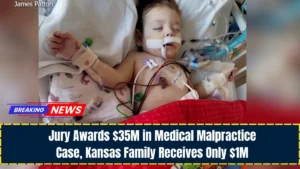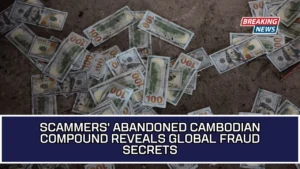Kansas City is preparing to pay a $1.4 million settlement to resolve a high-profile whistleblower lawsuit filed by former City Communications Director Chris Hernandez.
While this amount is nearly 50% more than the original jury verdict, legal professionals and city leaders argue that the increased payout could save the city from prolonged litigation, further legal expenses, and reputational harm.
The Case at a Glance
The lawsuit stemmed from allegations that Hernandez was retaliated against for refusing to mislead the public. According to claims, Hernandez was instructed to manipulate information released to the media during his tenure and was demoted for his refusal to comply.
A jury awarded Hernandez $700,000 earlier in 2025, which included compensation for emotional distress and retaliation.
However, the settlement under discussion would more than double that award to comprehensively cover back pay, lost pension, and legal fees.
Why the City Is Willing to Pay More
Though $1.4 million may seem like a steep price, it is being described as a cost-saving strategy. A continued legal battle could result in:
- A higher total judgment if appeals fail
- Accumulated attorney’s fees
- Potential punitive damages
- Increased public scrutiny
Opting for a settlement now is seen as a final resolution that prevents additional strain on the city’s budget and leadership credibility.
Breakdown of the Proposed Settlement
Below is a table outlining the key components of the proposed payout:
| Settlement Component | Amount (Approx.) |
|---|---|
| Jury Award (Original Damages) | $700,000 |
| Back Pay + Lost Pension Benefits | $228,829 |
| Legal Fees and Court Costs | $471,171 |
| Total Settlement Package | $1,400,000 |
The inclusion of legal fees and back pay increases the amount but ensures all aspects of the case are resolved without further hearings or appeals.
Impact on City Leadership and Public Trust
The case had broader implications beyond money. The former City Manager involved in the dispute, Brian Platt, was removed from his position following the jury’s decision.
The unanimous vote by the City Council to proceed with the termination reflected a zero-tolerance approach to ethical violations.
By agreeing to a higher settlement, the city demonstrates:
- Commitment to government accountability
- Support for whistleblower protection
- A desire to move forward without further controversy
Why the Settlement Is Still Considered a Bargain
From a legal standpoint, even with the 50% increase, the deal is being seen as fiscally responsible. A drawn-out appeal process could cost the city more than $1.4 million in additional damages, legal fees, and administrative distractions.
In fact, such settlements are not uncommon when municipalities wish to protect against future litigation exposure. Experts argue that paying more now avoids the unpredictable cost of continuing the legal battle.
Public Reaction and Long-Term Implications
The decision to approve the higher payout is likely to spur public discussion, particularly in relation to:
- Government transparency
- The cost of internal misconduct
- The value of whistleblower protections
However, the move could also set a precedent that Kansas City is willing to stand behind ethical behavior and rectify internal retaliation when it occurs.
The $1.4 million whistleblower settlement represents more than just a financial resolution—it’s a reflection of Kansas City’s effort to move forward, prioritize integrity, and learn from past internal conflicts.
Though the payout is 50% higher than the original award, legal and city experts agree it was a strategic decision to avoid ongoing legal challenges and reinforce trust in city operations.
For Kansas City residents and employees alike, this moment serves as a reminder that ethics, transparency, and justice have tangible value—and are worth protecting at all levels of governance.




